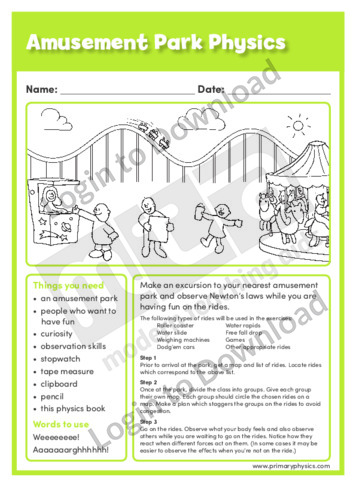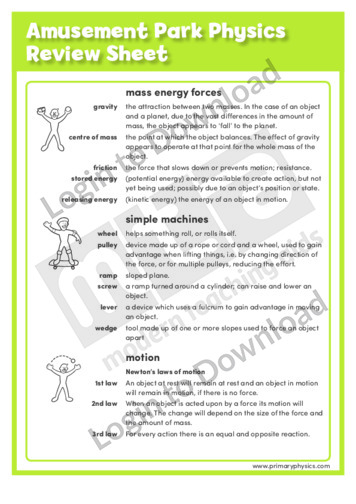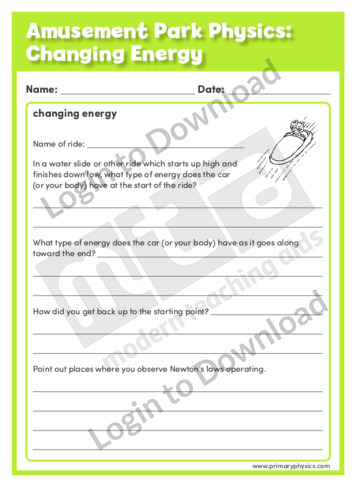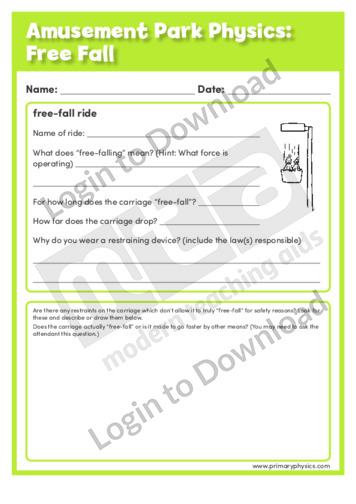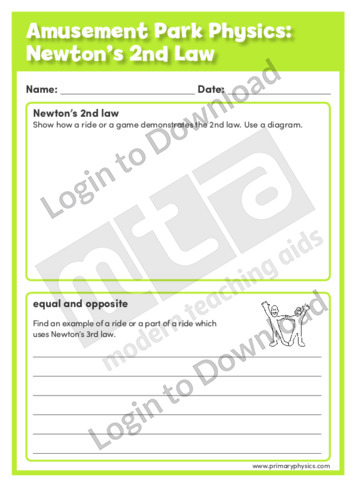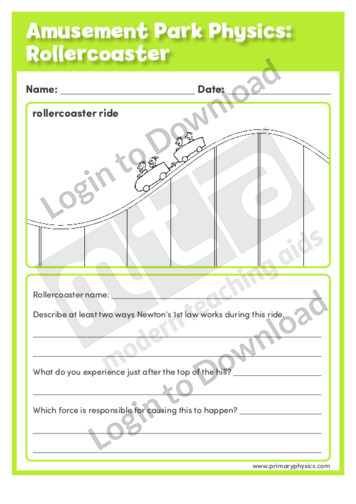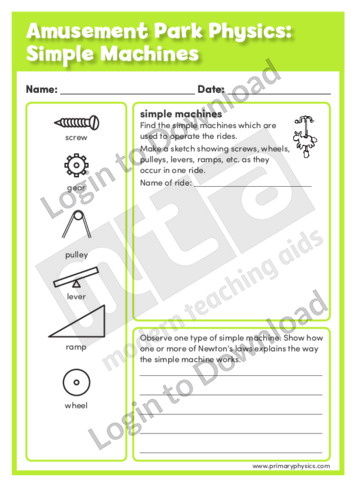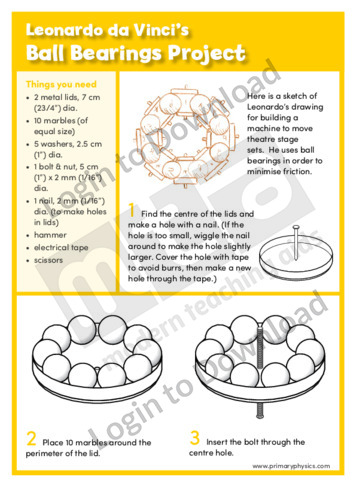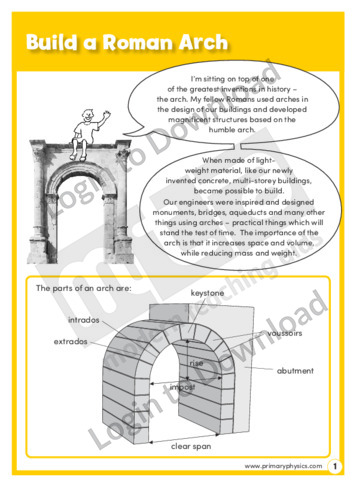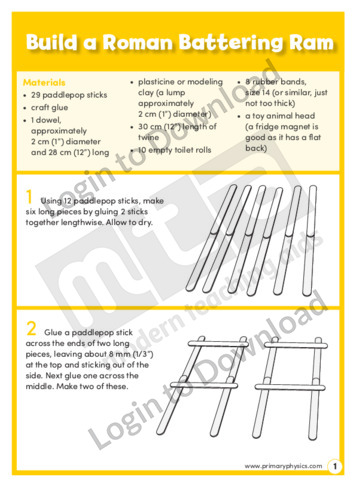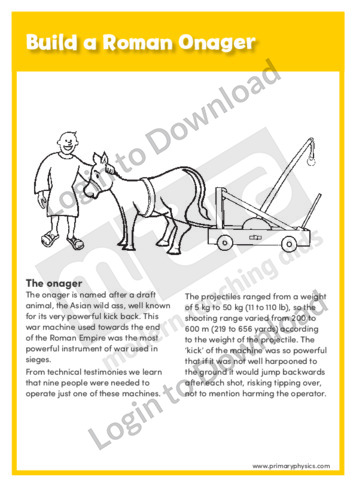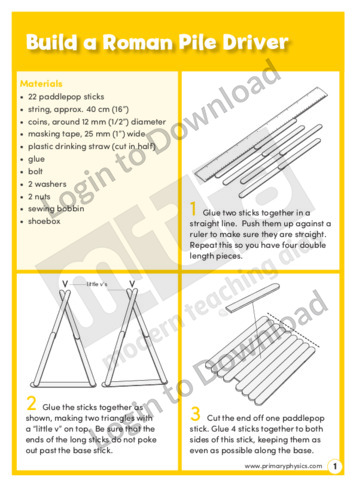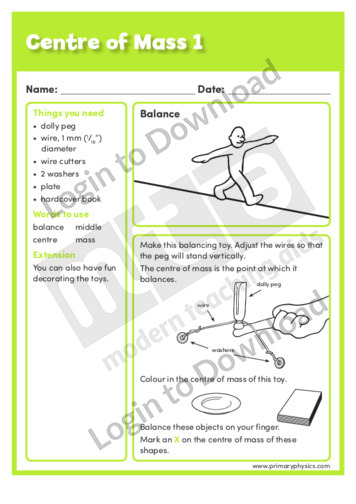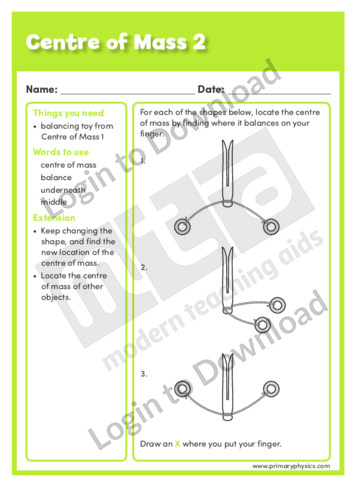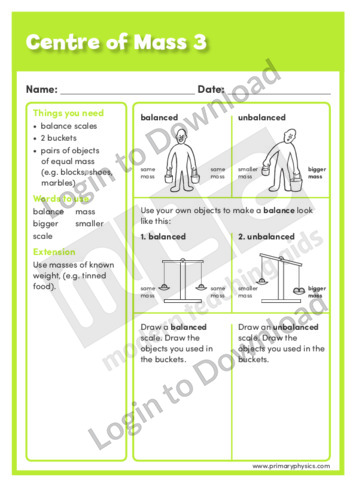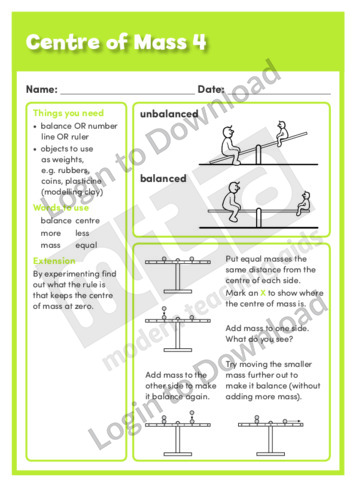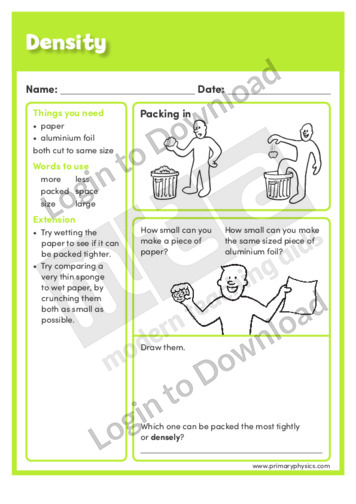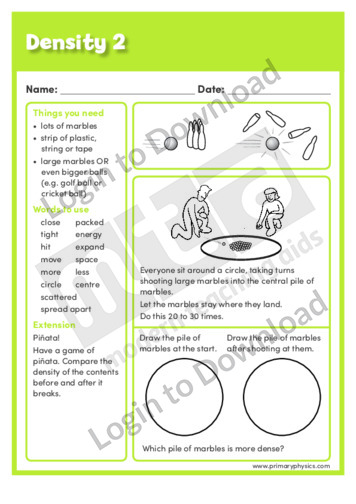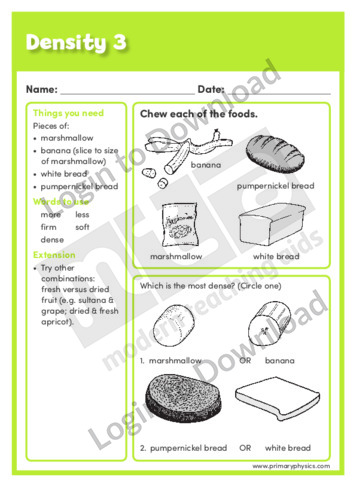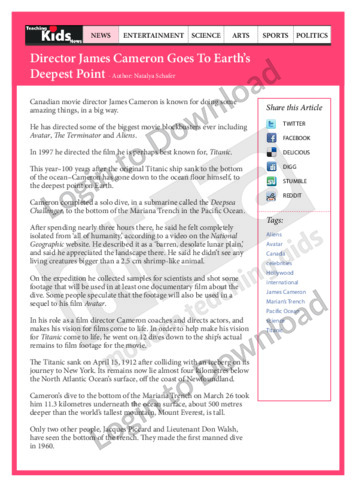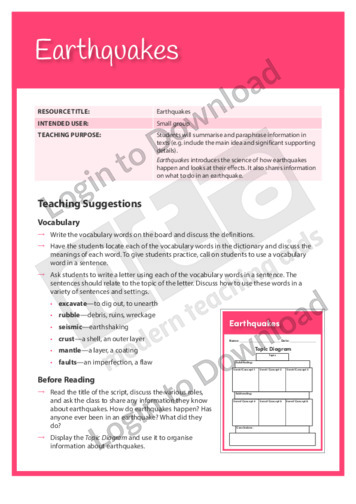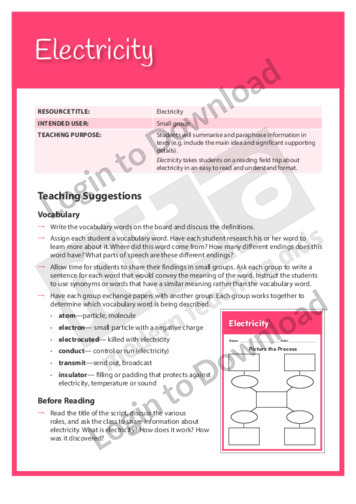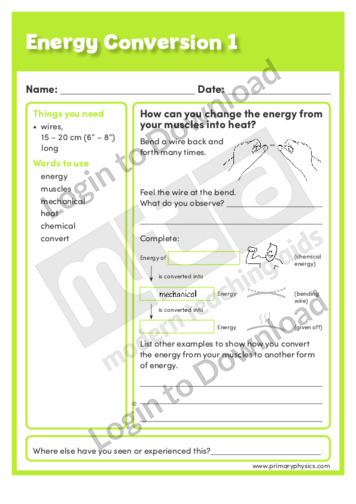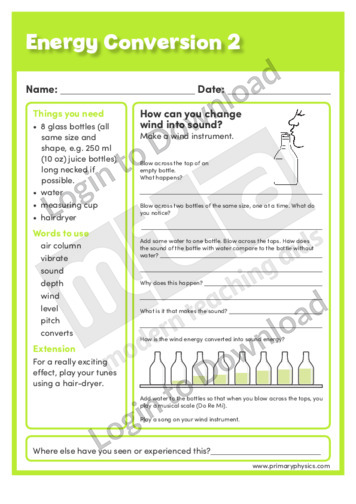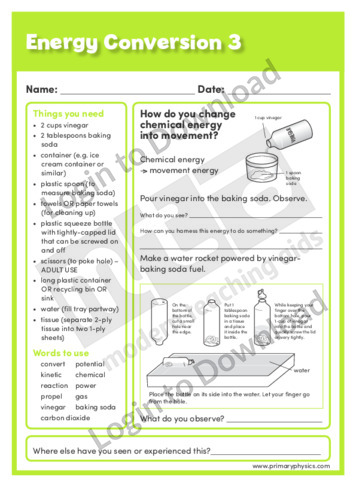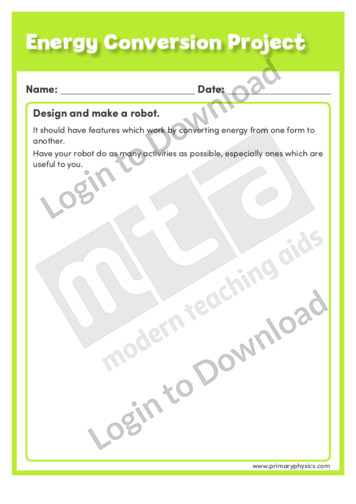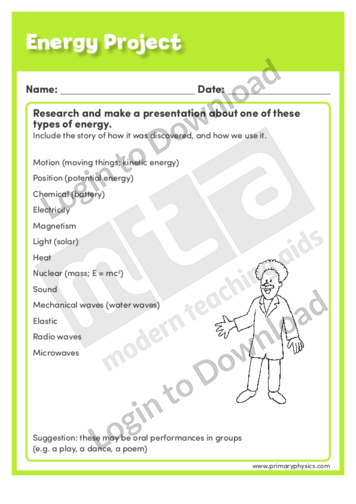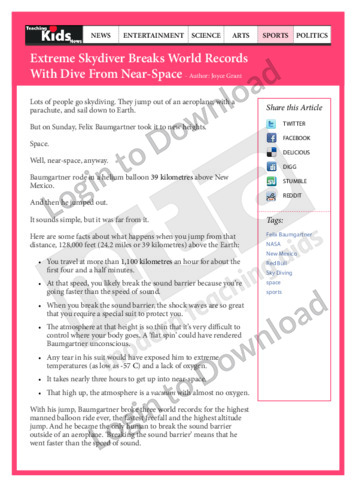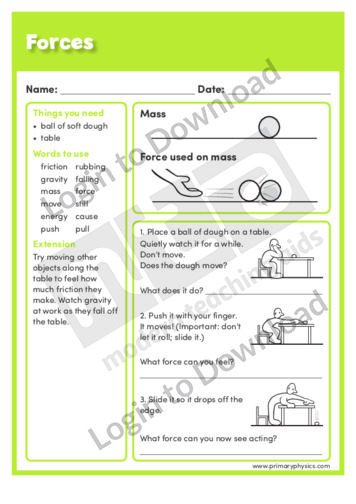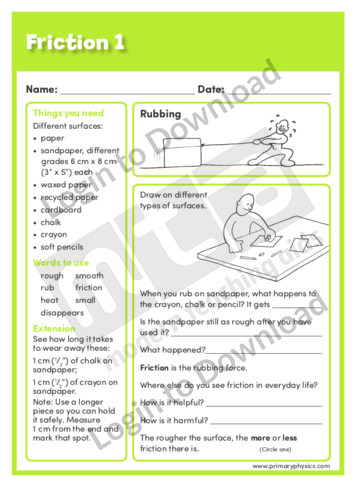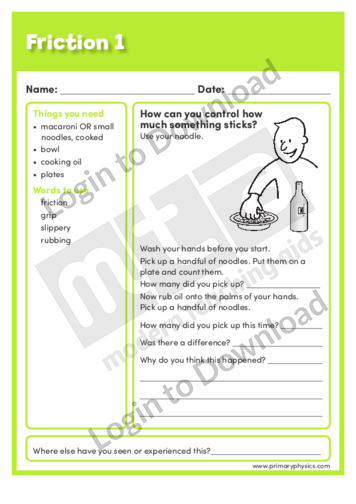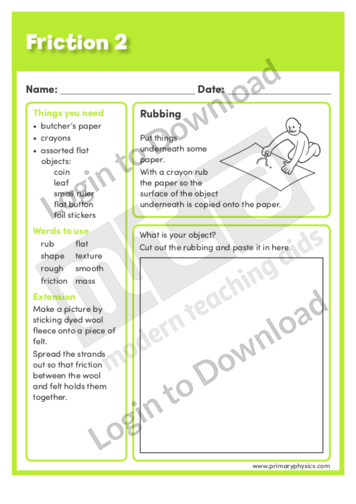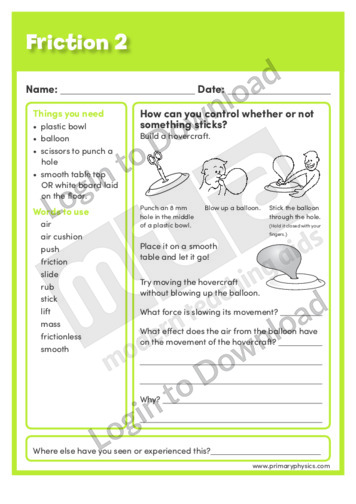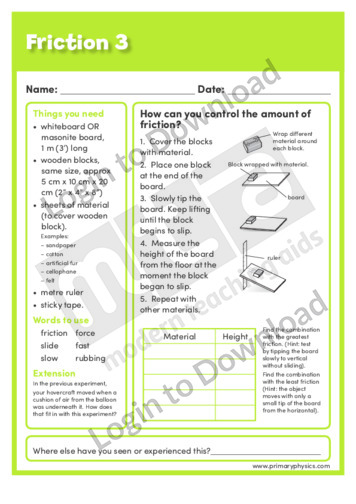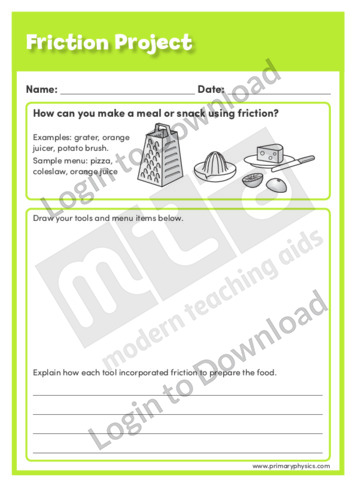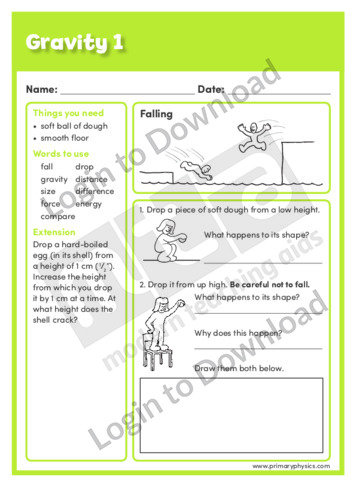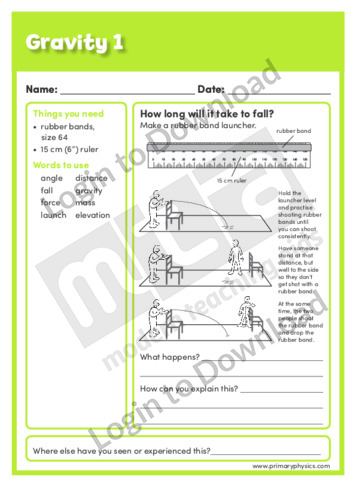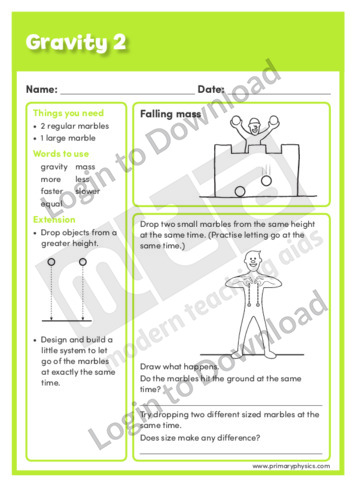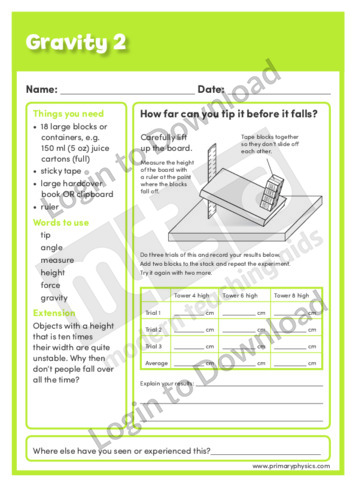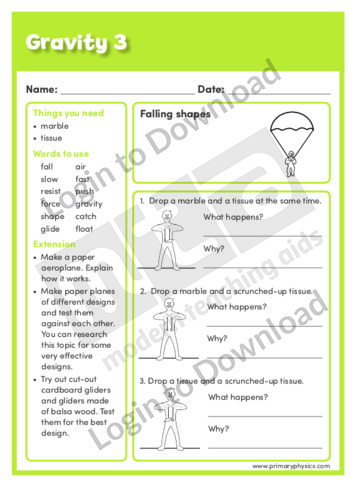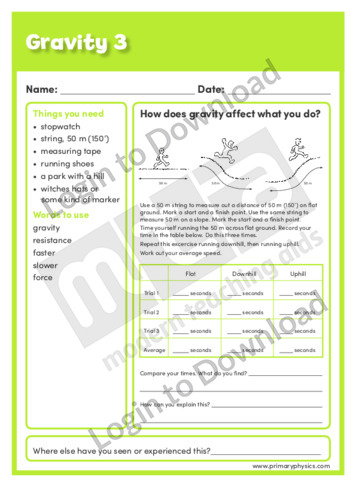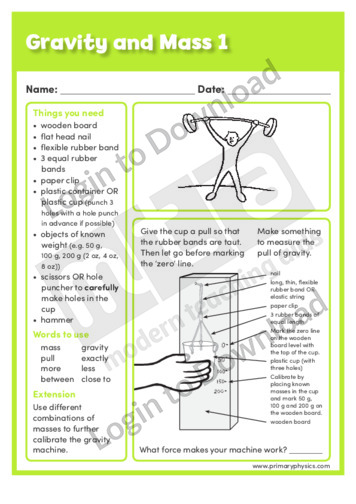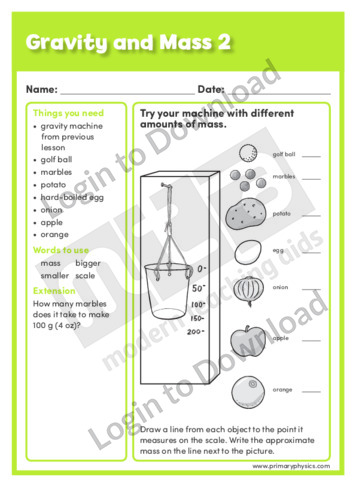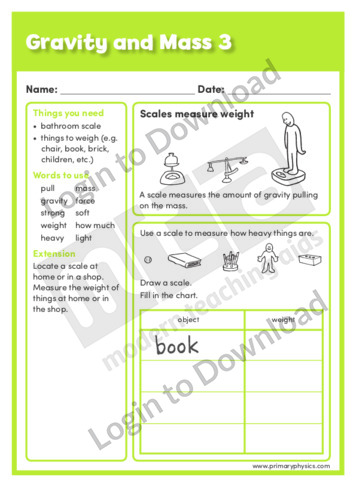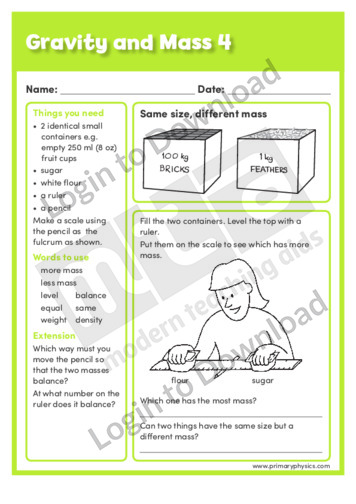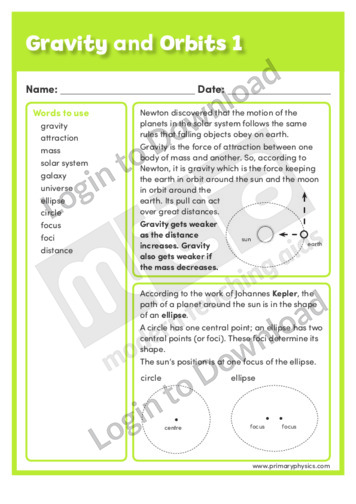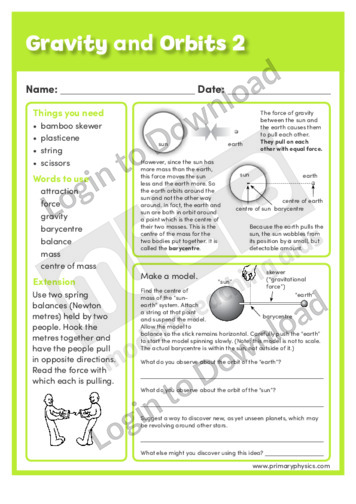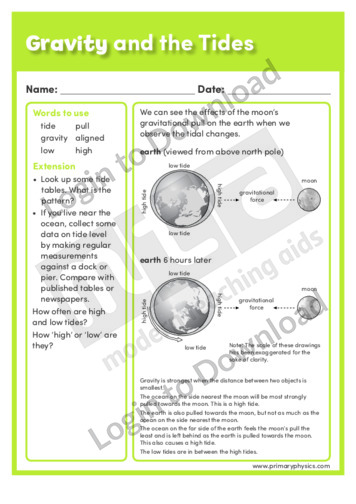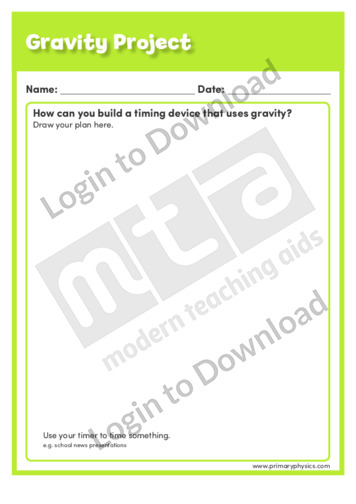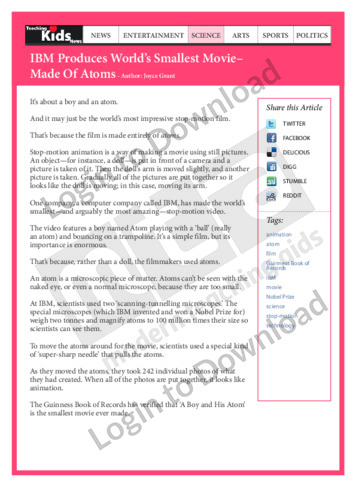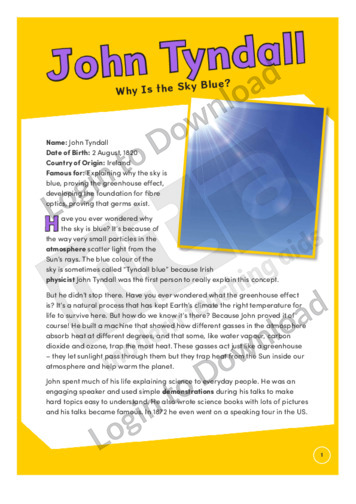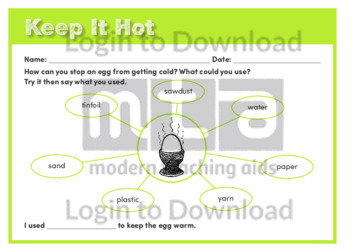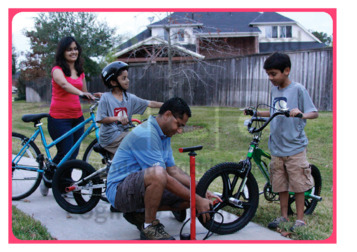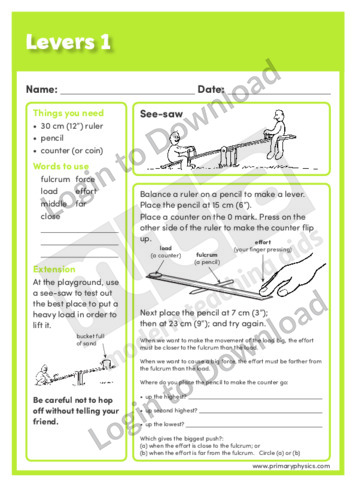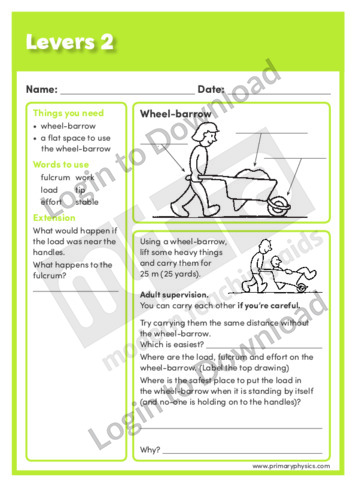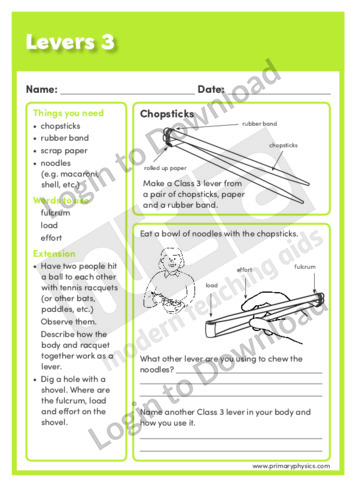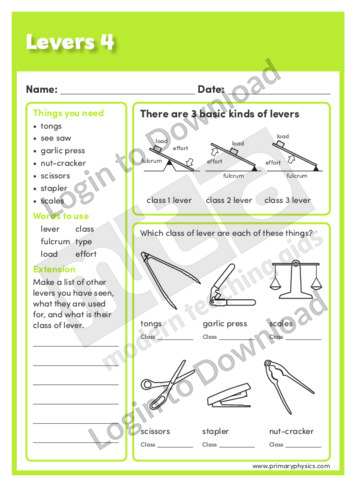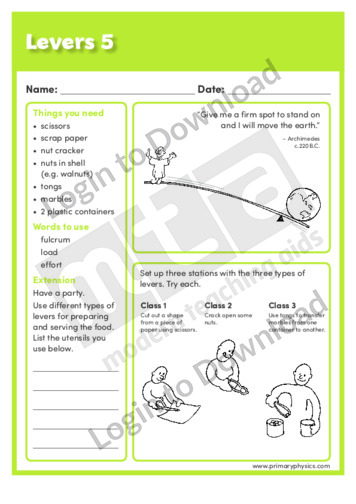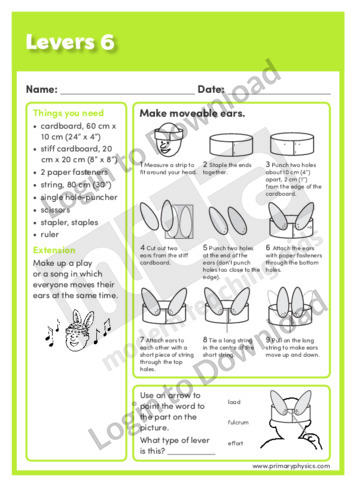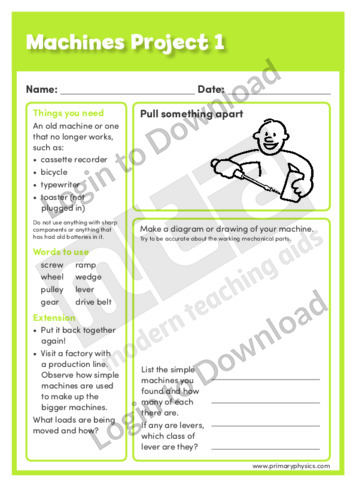This learning activity, ‘Amusement Park Physics’ requires students to go on an excursion to a local amusement park and observe Newton’s laws of motion in action.
This quick reference chart, ‘Amusement Park Physics Review Sheet’ provides a quick summary on simple machines and the basic physics concepts of mass, energy, force and motion.
This learning activity, ‘Amusement Park Physics: Changing Energy’ supports students to identify the conversion of potential energy to kinetic energy whilst on excursion.
This learning activity, ‘Amusement Park Physics: Free Fall’ supports students to identify the forces involved when on a free fall ride at an amusement park.
This learning activity, ‘Amusement Park Physics: Newton’s 2nd Law’ helps students to understand how a ride or game on an excursion demonstrates Newton’s second and third laws of motion.
This learning activity, ‘Amusement Park Physics: Rollercoaster’ supports students to identify how Newton’s first law of motion works when riding a rollercoaster on an excursion.
This learning activity, ‘Amusement Park Physics: Simple Machines’ supports students to identify simple machines used to operate rides whilst on excursion.
This hands-on activity, ‘Ball Bearings Project’ asks students to build Leonardo da Vinci’s machine used to move theatre stage sets.
This hands-on activity, ‘Build a Roman Arch’ asks students to construct a Roman arch from ice and explore its significance to Roman structures.
This hands-on activity, ‘Build a Roman Battering Ram’ asks students to construct a Roman Battering Ram from paddle pop sticks and investigate its significance to Roman wartime and reconstruction.
This hands-on activity, ‘Build a Roman Onager’ asks students to construct a Roman Onager from paddle pop sticks and explore its use in Roman wartime.
This hands-on activity, ‘Build a Roman Pile Driver’ asks students to construct a Roman Pile Driver from paddle pop sticks and investigate its significance to Roman construction and warfare.
This hands-on activity, ‘Centre of Mass 1’ asks students to investigate the concept of centre of mass through making a balancing toy.
This hands-on activity, ‘Centre of Mass 2’ asks students to investigate the concept of centre of mass through balancing a toy on their fingers.
This hands-on activity, ‘Centre of Mass 3’ asks students to investigate balance and the pull of gravity using two buckets with objects of different sizes.
This hands-on activity, ‘Centre of Mass 4’ asks students to investigate balance and the pull of gravity using a scale.
This hands-on activity, ‘Density 1’ asks students to investigate the concept of density being mass packed into a space through packing pieces of paper and aluminium foil into a container.
This hands-on activity, ‘Density 3’ asks students to investigate density through chewing a variety of different foods.
This kids news activity, ‘Director James Cameron Goes To Earth’s Deepest Point’ is about Cameron’s solo dive, in a submarine, to the bottom of the Mariana Trench in the Pacific Ocean.
This Readers Theatre activity, ‘Earthquakes’ encourages students to summarise and paraphrase information in texts. It also builds reading fluency. This activity includes a script for 4 readers.
This Readers Theatre activity, ‘Electricity’ encourages students to summarise and paraphrase information in texts. It also builds reading fluency. This activity includes a script for 3 readers.
This hands-on activity, ‘Energy Conversion 1’ asks students to investigate the concept of energy conversion when bending a wire back and forth.
This hands-on activity, ‘Energy Conversion 2’ asks students to make a wind instrument and investigate how you can change wind into sound.
This hands-on activity, ‘Energy Conversion 3’ asks students to make a water rocket to investigate how you can change chemical energy into movement.
This hands-on activity, ‘Energy Conversion Project’ asks students to design and build a robot to explore the conversion of energy.
This hands on activity, ‘Energy Project’ can be used to assess students’ research and presentation skills in investigating different types of energy.
This kids news activity, ‘Extreme Skydiver Breaks World Records With Dive From Near Space’ is about Felix Baumgartner’s record-breaking high-altitude jump and his other daring feats.
This hands-on activity, ‘Forces’ asks students to investigate what happens when force is used on mass.
This hands-on activity, ‘Friction 1’ asks students to explore the concept of friction and the effect of rubbing sandpaper on different surfaces.
This hands-on activity, ‘Friction 1’ asks students to investigate the concept of frictional forces and what happens when you try to pick up a handful of noodles with and without the use of oil.
This hands-on activity, ‘Friction 2’ asks students to explore the concept of friction and the effect of rubbing crayons on different surfaces.
This hands-on activity, ‘Friction 2’ asks students to investigate the concept of frictional forces and what happens when you build and launch a hovercraft.
This hands-on activity, ‘Friction 3’ asks students to explore the concept of friction and how the use of different materials can control the amount of friction.
This hands-on activity, ‘Friction Project’ asks students to make a meal or snack using friction.
This hands-on activity, ‘Gravity 1’ asks students to investigate the effect of gravity on a piece of dough being dropped from different heights.
This hands-on activity, ‘Gravity 1’ asks students to investigate the force of gravity and what happens when you shoot and drop a rubber band at the same time.
This hands-on activity, ‘Gravity 2’ asks students to investigate what happens when two marbles are dropped from the same height at the same time.
This hands-on activity, ‘Gravity 2’ asks students to investigate how high they can tip a board with different heights of block towers on it before they fall off.
This hands-on activity, ‘Gravity 3’ asks students to investigate what happens when a marble and a tissue are dropped from the same height at the same time.
This hands-on activity, ‘Gravity 3’ asks students to explore the concept of gravitational force and the effect of running on a flat, downhill and uphill surface.
This hands-on activity, ‘Gravity and Mass 1’ asks students to make a simple scale to show that the more mass an object has, the greater the effect of gravity.
This hands-on activity, ‘Gravity and Mass 2’ asks students to use a simple scale to investigate objects of different mass.
This hands-on activity, ‘Gravity and Mass 3’ asks students to introduce the concept of weight as gravity pulling on mass through using scales to measure how heavy different objects are.
This hands-on activity, ‘Gravity and Mass 4’ asks students to investigate the concept of same size, different mass through comparing two objects of the same size but differing weight.
This hands-on activity, ‘Gravity and Orbits 1’ asks students to draw the orbit of a planet around the sun and investigate the relationship between distance and the force of gravity.
This hands-on activity, ‘Gravity and the Tides’ asks students to investigate the effects of the moon’s gravitational pull on the earth when we observe tidal changes.
This hands-on activity, ‘Gravity Project’ asks students to build a timing device that uses gravity.
This kids news activity, ‘IBM Produces World’s Smallest Movie – Made Of Atoms’ is about a stop-motion film created on an atomic level.
This history article, ‘John Tyndall’ features the Irish physicist who explained why the sky is blue, the greenhouse effect, invented the fire-fighter’s respirator and proved light could be bent, which paved the way for fibre optics. It provides factual information about the life of John Tyndall and his achievements, along with a glossary of unfamiliar …More
This physical science worksheet, ‘Keep It Hot’ supports students to explore ways to keep an egg hot.
This oral language photo activity ‘Cycling’, enhances vocabulary and concept development by providing a thought-provoking visual stimulus that can be used as a prompt to engage students in discussion. Each photo is complete with an accompanying lesson plan featuring tips and activities to develop oral language and vocabulary further.
This hands-on activity, ‘Levers 1’ asks students to investigate the concept of a lever and how the movement of a load is impacted by the efforts location to the fulcrum.
This hands-on activity, ‘Levers 2’ introduces the concepts of fulcrum, load and effort through the use a wheel-barrow.
This hands-on activity, ‘Levers 3’ asks students to make chopsticks and investigate the types of levers involved when students use them to eat.
This hands-on activity, ‘Levers 4’ asks students to explore various types of items and identify which class of lever they belong to.
This hands-on activity, ‘Levers 5’ asks students to explore various types of items and identify which class of lever they belong to.
This hands-on activity, ‘Levers 6’ asks students to make moveable ears and identify the fulcrum, load, effort and class of the lever.
This hands-on activity, ‘Machines Project 1’ asks students to pull apart an old machine and examine how many simple machines and levers they are made up of.
It�s that easy!

